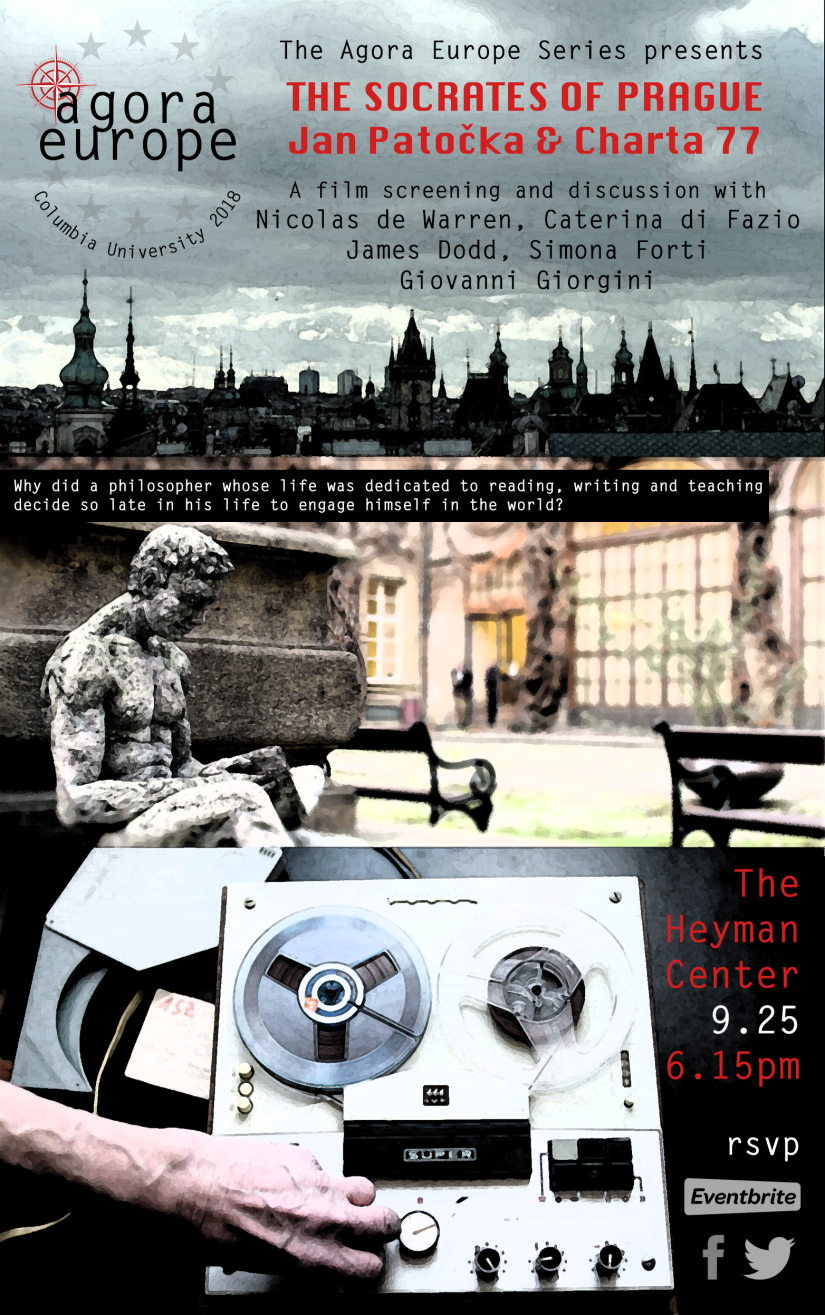Speakers:
Please RSVP here
Find more on the Heyman Center website

In 1977, in Prague, city at the heart of Europe, the philosopher Jan Patočka became the unlikely spokesperson for Charta 77 — a proclamation signed by a number of dissidents and issued to the communist authorities that pointed out the flagrant disregard of the norms of freedom and legality in Czechoslovakian society.
What is the significance of this engagement? Who was Jan Patočka?
The Socrates of Prague explores these questions by addressing several students and friends who in the 1960s and 70s witnessed Patočka’s intellectual and political efforts, and shared with him the intense desire for a social and political renewal after the dramatic end of the Prague Spring.
About the Movie
The Socrates of Prague has been filmed in February 2017 in Prague by a crew of the Leuvens Instituut voor Media en Leren directed by Sam Willems. The film realisation has been generously supported by the European Research Council. Film locations include the National Library of the Czech Republic, the Patočka Archive, and the Czech Academy of Sciences.
About Jan Patočka
Jan Patočka (1 June 1907 – 13 March 1977) was a Czech philosopher. Due to his contributions to phenomenology and the philosophy of history he is considered one of the most important philosophers of the 20th century. Having studied in Prague, Paris, Berlin and Freiburg, he was one of the last pupils of Edmund Husserl and Martin Heidegger. During his studies in Freiburg he was also tutored by Eugen Fink, a relationship which eventually turned into a lifelong philosophical friendship. In January 1977 he became one of the original signatories and main spokespersons for the Charter 77 (Charta 77) human rights movement in Czechoslovakia. For the three months after the Charter was released he was intensely active writing and speaking about the meaning of the Charter, in spite of his deteriorating health. He was also interrogated by the police regarding his involvement with the Charter movement, and on March 3, 1977 he was held by the police for ten hours, who had claimed that he would be allowed to speak in his role as a Charter spokesperson with a high-ranking official (in fact, this was a pretext to keep him from attending a reception at the West German embassy[2]). He fell ill that evening and was taken to the hospital, where his health briefly improved, enabling him to give one final interview with Die Zeit and to write one final essay entitled “What We Can Expect from Charter 77.” On March 11 he relapsed, and on March 13 he died of apoplexy, at the age of 69.
Find more on the movie website


